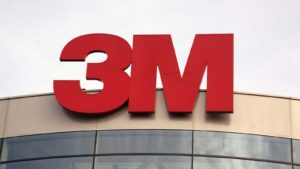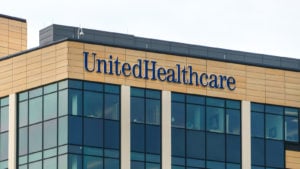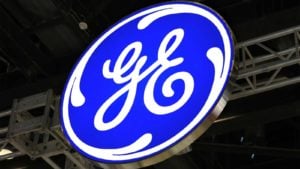After an exceptionally strong performance in the stock market in 2019, 2020 will have a higher than average chance of a correction. This argument can only hold true if either fundamentals worsen and volatility rises or if markets decide to lock in profits early. The S&P 500 rose by almost 30%, so even a slow 5%-10% pullback will still net a 20%-35% return in a one-year period.
To stay investors but minimize the damage from the potential near-term downside, consider accumulating value stocks in 2020. Since it is impossible to time or predict any market correction, investors will need to have the discipline to shift from growth to value. Demand value and have a bias for stocks that pay a dividend. Phillip Braun, the Clinical Professor of Finance and Associate Chair of the Finance Department at Kellogg School of Management, said:
Money will flow out of low volatility funds because of their declining performance.
As market uncertainty continues to prevail, dividend funds will continue to be popular, momentum funds will see a net outflow and quality fund inflows will continue to rise.
There will be a shift of money from growth funds into value funds as the performance of growth funds decline relative to value funds.
Besides adding to dividend fund holdings, what are seven value stocks that investors will want to buy in 2020?
Value Stocks to Buy: BP (BP)
The energy sector vastly underperformed the markets in 2019 and is due for a strong rebound in 2020. Oil prices rose to around $60 a barrel recently despite Wall Street analysts predicting prices falling next year. But that logic does not make sense. If the OPEC exercises restraint in limiting supply, then oil stocks will perform well in the year ahead.
In its third quarter, BP (NYSE:BP) reported a massive $2.6 billion asset write-down. The company uses underlying replacement cost profit to measure net income. In October, it reported that the metric fell 41% year-over-year to $2.3 billion.
BP’s lower interest realizations in the U.S., down around $6 quarter-over-quarter, is due mostly to the barrels coming from the Gulf of Mexico. But if energy prices improve in the year ahead, BP’s profit margins will rise. Plus, the company completed maintenance costs and has no hurricane-related expenses in the next few quarters.
The income investor will also have the confidence that BP will sustain its dividends through persistently strong future cash flows. On top of that, it will deploy its cash to buy back shares and lower its debt to continue de-levering its balance sheet. Asset disposals will also lift cash flows in the next year while BP’s balance sheet improves.
Investors should use the Dividend Discount Model: Stable Growth to estimate a fair value on BP stock. At a perpetuity growth rate of 3.5%, the stock is worth $41.60.
Schlumberger (SLB)

With a dividend that yields 5%, Schlumberger (NYSE:SLB), which rose 30% from its yearly lows, is a potentially rewarding value play in 2020. Investors have many reasons to hold this oil and gas equipment and services company despite its warnings on the drilling and fracking market. Schlumberger took a massive $12.7 billion write-down in the third quarter related to goodwill intangibles and fixed assets.
On its conference call, the company said:
Most of the goodwill and intangible comes from two major acquisitions. In 2010, we did the Smith acquisition, which was almost 100% paid by stock. We issued 138 million shares at that time, and then, Cameron in 2016, where we paid almost 78% in stock. The book value of those two acquisitions was booked for Smith at $56 per share, for Cameron at $72 per share.
Schlumberger is forecasting a conservative year ahead despite the prospects of better energy prices. But since the company experienced modest product equipment sales in the last two or three years, 2020 budgets may be the same. So, Schlumberger is cautious for the upcoming year. A recession or any geopolitical or economic events will hurt its business. International growth will hold steady, helped by strong offshore activity in both shallow and deep-water environments.
The company said that it is too early to forecast a rebound in the North American market. It will have a better idea on the second quarter’s performance if it sees stronger activity starting in January. At that time, Schlumberger’s customers will set their expectations for 2020. And when they do, it will be better positioned to set investor expectations, too.
Similar to BP, Schlumberger has three asset divestitures underway. It closed the Sensia joint venture in October. Its divesting of assets from the Eurasian Drilling Company will come next.
CVS Health (CVS)

Moving on to the healthcare space, CVS Health (NYSE:CVS) is becoming a growth play after its Aetna acquisition. One year after acquiring Aetna, CVS said the combined company “met or exceeded its first-year integration goals.” With cost-cutting and operational integration largely completed, the $69 billion acquisition will start contributing to growth.
CVS reported Q3 revenue growing 36.5%. It forecast 2019 revenue in the range between $11.8 billion and $11.95 billion. Adjusted operating income will come in as high as $15.4 billion. As CVS transforms its business into the country’s leading consumer health company, its stock should continue its uptrend in 2020.
On the back-end, CVS is using data and analytics to drive prescription volumes higher. On the retail front, consumers will bring more business as CVS offers local personalized care. For example, MinuteClinics and HealthHubs increase healthcare accessibility and affordability. This may result in the company raising its full-year 2020 revenue expectations.
For 2020, CVS expects gross new business growing $1.1 billion. The net new business will add another $1 billion to results. And in 2021, CVS has its product line-up ready and an engaging sales staff who will serve its clients.
Based on 13 analysts who cover CVS stock, the average price target is $85.31.
UnitedHealth (UNH)
Though the stock traded close to its 52-week high recently, UnitedHealth (NYSE:UNH) has a forward price-to-earnings ratio of around 18 times. The company forecast 2019 revenue of around $242 billion. Earnings per share will be $14.15-$14.25. In 2020, revenue will expand to between $260 billion and $262 billion while EPS will increase to $15.45-$15.75.
In 2020, the key drivers to UNH’s 13%-16% growth rate exclude the positive impact of deploying strategic assets. It also excludes the use of additional strategic capital. So, if UNH introduces assets in the marketplace in 2020 to drive down costs for patients while improving quality, management may raise its guidance for the next year.
UNH will continue to benefit from the performance of OptumCare. The strong momentum in the unit will sustain itself in 2020. OptumHealth is set to become the nation’s value-based patient-centric medical system. So, as it manages costs on medicare and empowers OptumRx and OptumCare with digital solutions, profitability will grow.
Investors should notice that OptumHealth margins fell 110 basis points from last year. This is due mostly to the DaVita Medical Group acquisition. As its integration of the unit progresses, expect the financial performance of the unit increasing.
The average price target on CVS Health stock is $311.95.
General Electric (GE)
Though General Electric (NYSE:GE) is trading close to its 52-week high, the beaten-down conglomerate is a potential rebound play for value investors.
Boeing’s (NYSE:BA) 737 Max production halt is a negative headwind for GE’s LEAP engines. But Boeing will eventually get the Federal Aviation Administration’s certification for the plane. And when it does, GE will get back the $1.4 billion it lost from the grounding. Investors only need to wait patiently for that inevitability. Even if the delays persist longer than thought, GE will still have plenty of customers buying its engines.
In 2020, GE will continue to improve its balance sheet by cutting its debt levels. GE Healthcare’s PET Tracers enjoys a 4 million installed base. In fact, its backlog of $18 billion suggests steady cash flow growth in the future is sustainable. Last quarter, GE’s industrial cash flow improved to a positive $650 million. It benefited from the continued stabilization from its Power unit. As cash flow growth continues, GE is in a good position to pay down its debt.
GE ended the third quarter with net debt below $30 billion. So, it still has plenty of debt it must work down. Its Renewable Energy unit was one of GE’s bright spots in the last quarter. Orders rose 30% to $5 billion, lifted by international orders rising 94% year-over-year. GE also said that favorable new order pricing helped increase the backlog to $27 billion, up 19% from last year.
If GE sustains a perpetuity growth rate of just 2.5% in the next five years, then the stock is worth around $14.
Comcast (CMCSA)

Though shares of Comcast (NASDAQ:CMCSA) rose by around 30% in the year, the stock has a low P/E of 16.6. Investors may want to wait for a few positive catalysts ahead.
After peaking in September at $47.27 and falling since then, Comcast already prices in the disappointing box office numbers. Its video streaming strategy, through the Peacock streaming service, is a potential growth story in 2020. Comcast will hold an Investor Day on Jan. 16. As it gives more details on what the product will actually be, investors will decide how the service fares compared to Netflix (NASDAQ:NFLX) and Disney’s (NYSE:DIS) Disney+.
The upcoming streaming service will cost Comcast $2 billion in investments. Management expects costs peaking at 1% of Comcast’s revenue, but that the service will achieve break-even by the fifth year.
Comcast’s Universal Parks and Resorts unit has a consistent track record for performing. And in 2020, Nintendo World will help boost performance. The company has two new parks under development, including one in Beijing, China. Although it opens in 2021, markets could start pricing in its upside in 2020.
Epic Universe is also under construction and will open in Orlando, Florida in 2023. Again, Comcast will book the investment costs in 2020 but markets will price in the success of these parks ahead of their openings.
3M (MMM)

3M (NYSE:MMM) shares lost money for investors this year but in 2020, that might change for the better. On Dec. 12, the company announced it would sell all of its drug delivery business to Altaris Capital for $650 million. 3M’s CEO said:
This transaction will allow us to focus more resources on our core health care business as well as retain a share in the value of the drug delivery business as it grows over the coming years.
3M needs to simplify its business and strengthen the performance of its core businesses. And although it had the opportunity to grow its profits through the drug delivery market, it now must find growth in other ways. That includes the global electronics market. So, if the factory automation markets rebound in China, 3M will benefit. Semiconductor manufacturers like Applied Materials (NASDAQ:AMAT) and Micron Technology (NASDAQ:MU) posted strong quarterly results. Both are positive on the outlook for 2020. If the consumer electronics market rebounds, 3M’s product refresh in electronics will lead to the rebound in revenue.
The automotive market is undergoing a major acceleration in innovation growth. As more materials and electronics are added to automobiles, demand for its goods used in this sector will grow.
3M cited its $6.7 billion acquisition of Acelity as a positive catalyst to growth. With 3M’s innovation model in mind, the combined company should report higher margins and return on invested capital. This may begin in 2020 but will certainly continue in the years ahead.
As of this writing, Chris Lau owned shares of BP.



